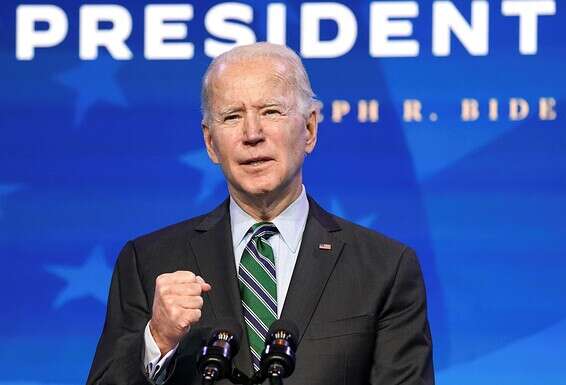Ahead of his inauguration, a number of key challenges await the incoming president, including the fight against Corona and its economic consequences. • The trend of de-trampling will continue to be polarized.
National Guard in Washington // Photo: Reuters
In August 1974, President Richard Nixon was forced to resign in disgrace from a high-ranking official in the world, after the details and aspects of the Watergate affair were revealed, in which he was involved up to his neck in disrupting the investigation and concealing and committing criminal offenses.
Although his resignation spared him and the American nation the impeachment lawsuit pending before the Senate (after the House of Representatives had already decided on his impeachment), it exposed him to a flood of criminal and civil lawsuits that could not only humiliate and degrade Nixon personally, but disparage an institution. The presidency itself.
Even if the realization of this scenario gave refined expression to the principle of absolute equality before the law, it would further undermine the legitimacy of the governmental authority, and the legitimacy of the groundbreaking agreements (such as the agreement signed with China in February 1972) that Nixon (with the help of his National Security Adviser Henry Kissinger) was their architect, who created the infrastructure for a new and more stable world order.
Against this background, Nixon's successor to the White House, Gerald Ford, decided to grant him a presidential pardon and thus contributed - despite the public criticism that arose following the move - to steer American politics back to the tracks of a blessed routine, without the heavy and oppressive shadow of Watergate trauma and its sediments continuing to soar. The American.
Today, things seem to be different, and in the atmosphere of the rift and social polarization that the 45th president has contributed to aggravating, there is of course no possibility that Joe Biden, who will be sworn in as the 46th president of the United States in three days, will follow Ford's precedent and pardon Trump. Presidential (although the possibility of Trump pardoning himself on the eve of his retirement should not be ruled out - a precedent whose legitimacy is questionable.) Moreover, over the past four years, the status and prestige of the White House have eroded in the face of the president's anti-rivalry. From home and abroad.
However, despite his relentless efforts to challenge the rules of the game to thwart the voter decision, culminating in the violent onslaught of his followers from within the radical wing of his movement on Capitol Hill, the democratic leadership should exercise, and now, sober and sober discretion. (Which has just been approved by the House of Representatives).
This procedure is supposed to take place in the Senate, and in any case there is little chance that it will end in Trump's conviction by two-thirds of the members of the House, as required by law.
Precisely because the incoming president himself is very reluctant to advance the process, which is now at the door of the Senate - as this may frustrate his vision of trying to mend the nation's wounds and face the formidable challenges of fighting the corona virus and the epidemic of bipartisan epidemics. - Suddenly from the abyss of oblivion, the amnesty affair that Ford granted to Nixon and the consequences that can be deduced from it even today.
Even if this is not a pardon, Biden's clear preference (which is unlikely to be implemented by his party leaders determined to reconcile with Trump) is to freeze, or postpone until the end of at least 100 days of grace, the opening of Trump's trial as a confidence-building move designed to pave the way. National reconciliation and the isolation of the hard core left in the Republican camp is reminiscent of the conduct of Ford, who, 46 years ago, sought to put an end to the American tragedy that shook the nation for more than two years.
Thus, Biden's first test would be, paradoxically, to try to persuade his senior Senate colleagues to act rationally and out of long-term consideration, centered on the good of the state and the stability of American society.
After all, even without the Senate trial, the outgoing president will complete his term in isolation and without his main means of communication, disconnected, humiliated and rejected by quite a few of his ministers, supporters and bearers.
It should also not be forgotten that if this trend of de-trampling continues on Capitol Hill and the American public, the danger lies not only in continuing dangerous polarization in internal space (which could also harm the international status of the American superpower), but also erasing, or at least minimizing, all Trump’s accomplishments, especially in the Middle East, which underwent a dramatic political and strategic transformation under his scepter.
Days will tell if the emotional surge that is now befalling Washington will also seep into the realm of US foreign and security policy, much to the chagrin of the top of the pyramid.

